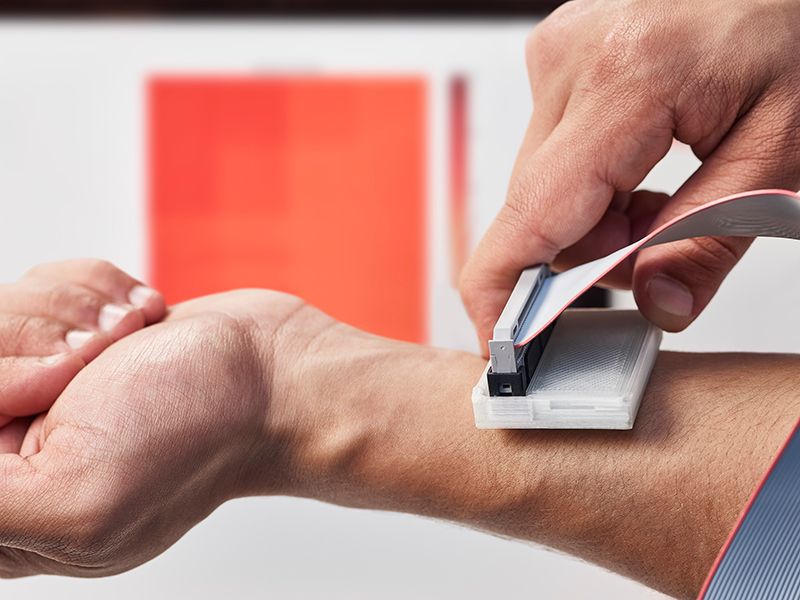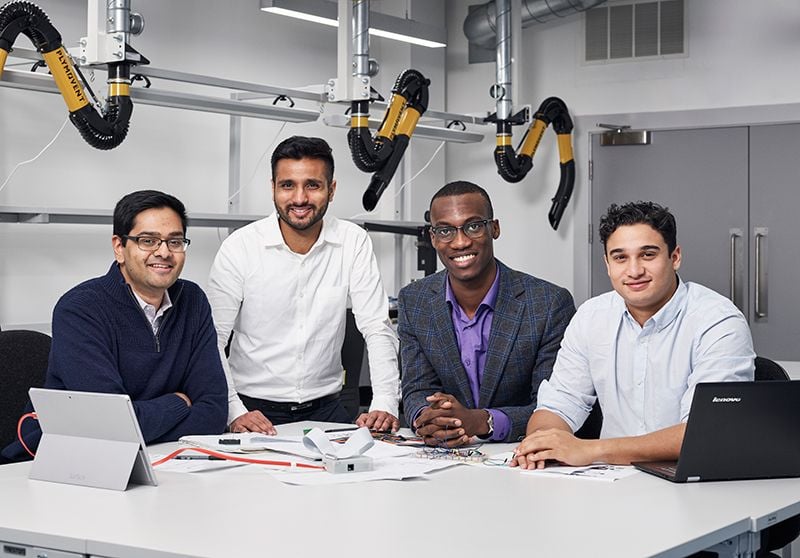This Inexpensive Scanning Device Could Catch Skin Cancer Early
A team of biomedical engineers has won this year’s Dyson Award for “the sKan,” which detects the thermal changes associated with melanoma
/https://tf-cmsv2-smithsonianmag-media.s3.amazonaws.com/filer/12/a0/12a02fe9-0bbd-46ab-bb43-8ab1ee0b77fb/skan.jpg)
Every year some 87,000 Americans are diagnosed with melanoma. And every year nearly 10,000 or so will die. While melanoma accounts for less than 1 percent of skin cancers, it’s by far the deadliest. Fortunately, when caught early it’s highly treatable. Unfortunately, the best method of early detection is far from clear. Doctors can perform visual exams on new or unusual moles, opting to biopsy ones they deem suspicious. But the accuracy depends on the particular doctor’s experience. Some cancers are missed, while benign moles are often biopsied unnecessarily.
This is the problem that four Canadian university students were aiming to tackle for the final project of their biomedical engineering class.
“Current diagnostic methods are strictly qualitative in nature,” says Prateek Mathur, one of the students. “So we set out to make a more quantitative tool.”
After eight months of work, the students came up with what they call "the sKan." It’s a device that creates a thermal map of the body, detecting the minute temperature changes associated with melanoma. It does this by using an array of inexpensive temperature sensors, which are placed around the area of skin under concern. The skin is then cooled, and the sensors track its return to normal temperature. Melanomas will initially show a higher temperature than surrounding skin—but only slightly, and only for a brief period.
“The difference is on a magnitude of tenths of a degree, which is why we needed accuracy,” Mathur says.

The device has just won the students—all now recent graduates from McMaster University in Ontario—a prestigious James Dyson Award. The award is given annually to current or recent engineering students who create, as the contest brief states, “products that have a significant and practical purpose, are commercially viable, and are designed with sustainability in mind.” James Dyson is a British inventor and founder of the Dyson company, best known for its vacuum cleaners. His inventions have made him one of the wealthiest people in the UK.
Mathur and his teammates—Michael Takla, Rotimi Fadiya and Shivad Bhavsar—won the top prize in the contest, $40,000, plus another $6,000 for their university. Runners up in the contest included a design for a low-waste 3D printer and an LED-guided device for making IV insertion or blood drawing easier.
“It was honestly surreal knowing that Sir James Dyson had picked our project from over a thousand other projects,” Mathur says.

The team is putting the money towards improving their prototype. They hope to make it even more sensitive, so that it can potentially detect even the tiniest, earliest melanomas. They’ll spend the money on higher quality components, and begin reaching out to doctors to begin pre-clinical testing.
“Current methods of detecting whether a lesion is melanoma or not is through the trained eyes of physicians—resulting in patients undergoing unnecessary surgery or late detection of melanoma,” says Raimond Wong, a physician with the Juravinski Cancer Centre in Ontario, in a statement from Dyson. “The sKan has the potential to be a low cost, easy to use and effective device, which can be afforded and adopted across health services."
While there are already methods of thermally scanning skin for cancer, these typically involve expensive high resolution thermal imaging cameras. Mathur and his team hope to have a finished product that can sell for about $1,000, making it accessible to the average physician.
“We want to provide an affordable solution to local communities that will promote early detection for melanoma,” Mathur says. “If detected early, the survivability rate of melanoma is over 90 percent.”
/https://tf-cmsv2-smithsonianmag-media.s3.amazonaws.com/accounts/headshot/matchar.png)


/https://tf-cmsv2-smithsonianmag-media.s3.amazonaws.com/accounts/headshot/matchar.png)